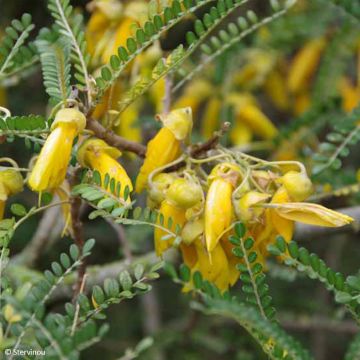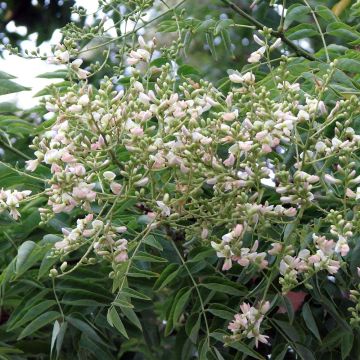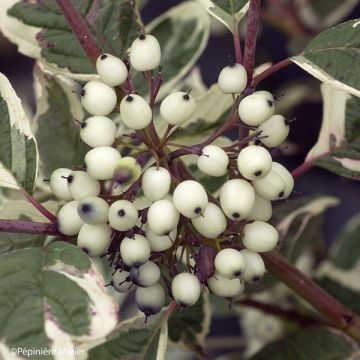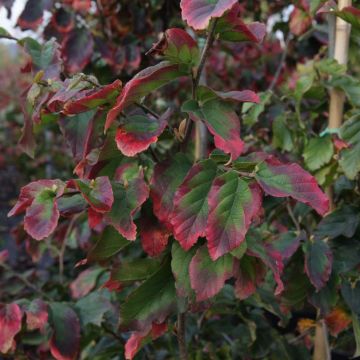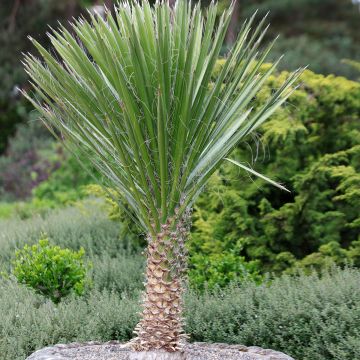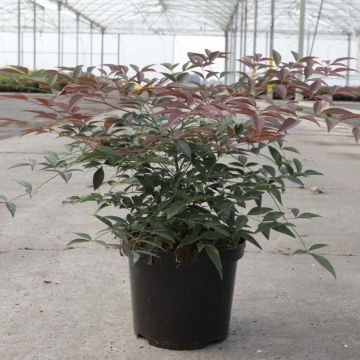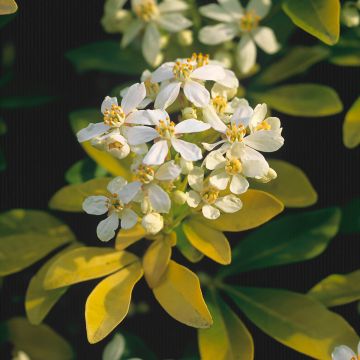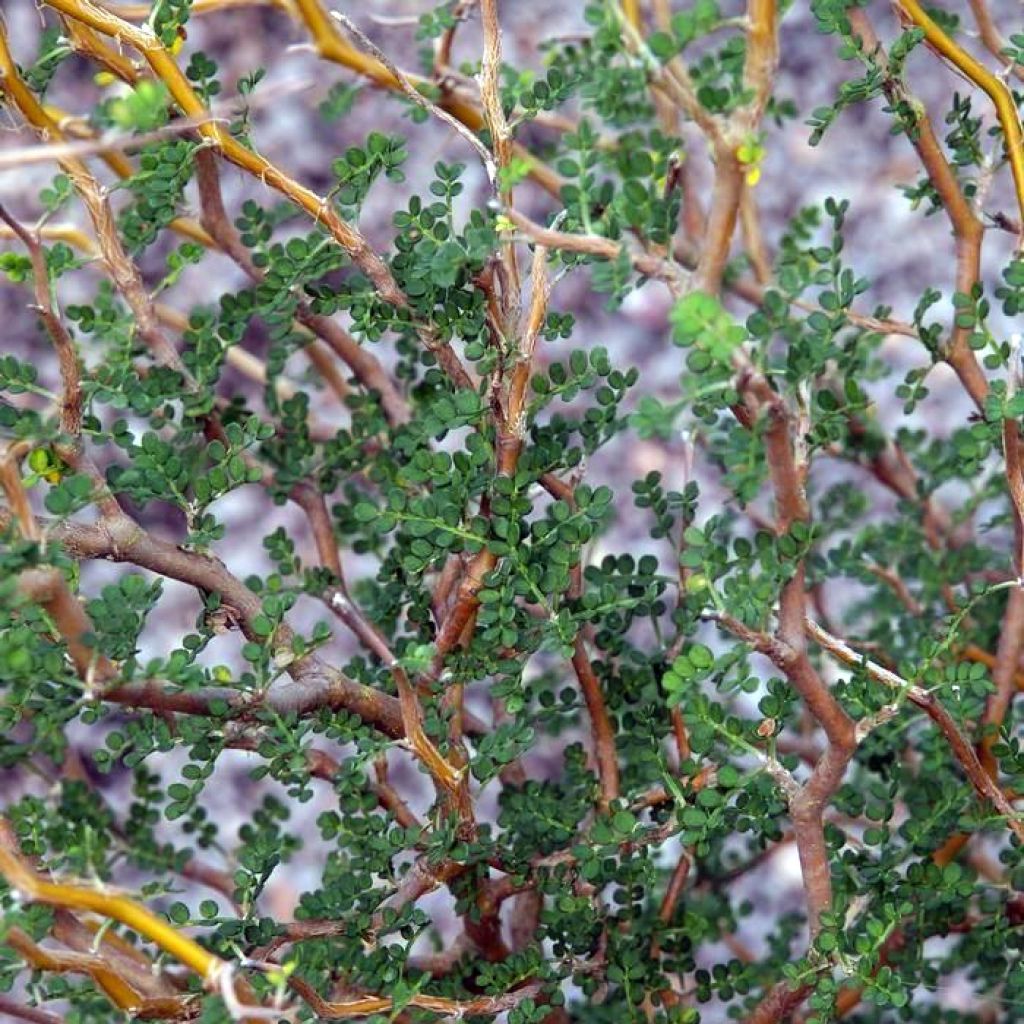

Sophora prostrata Little Baby
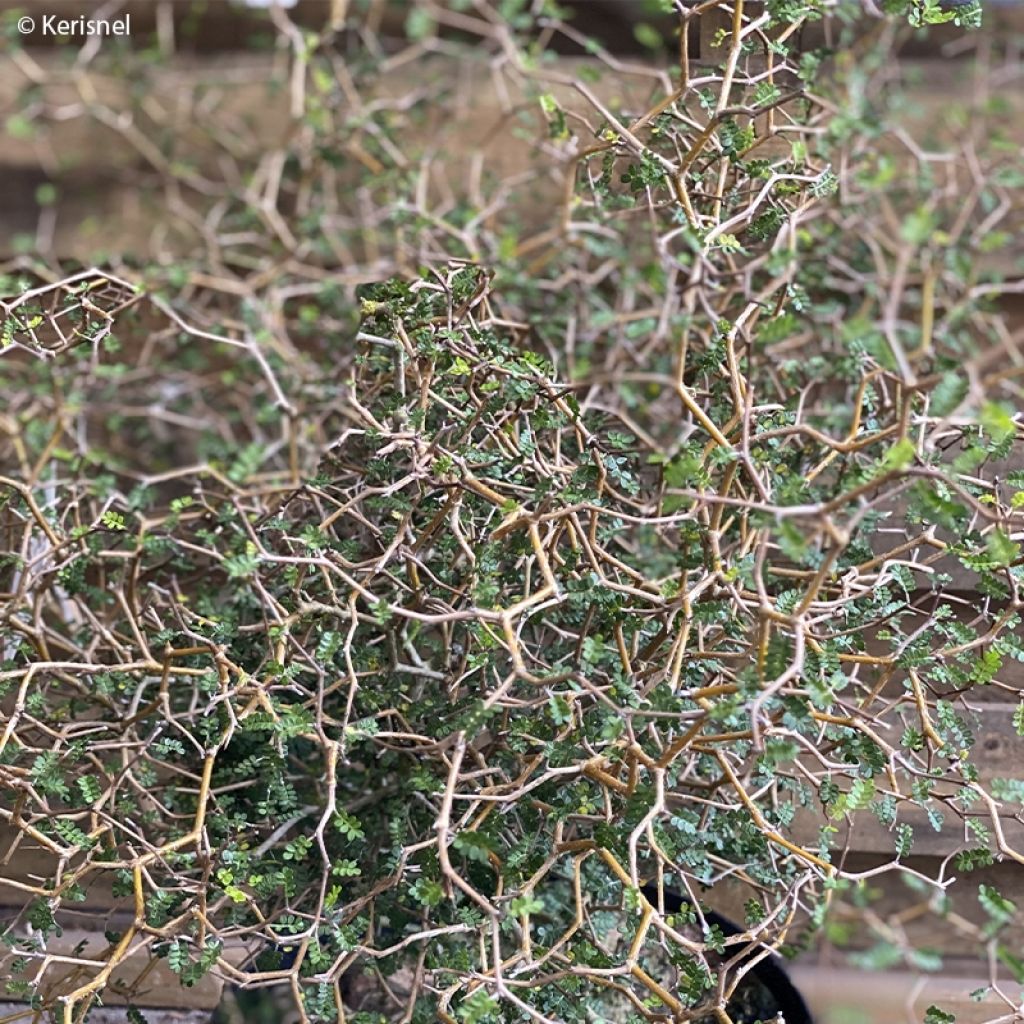

Sophora prostrata Little Baby
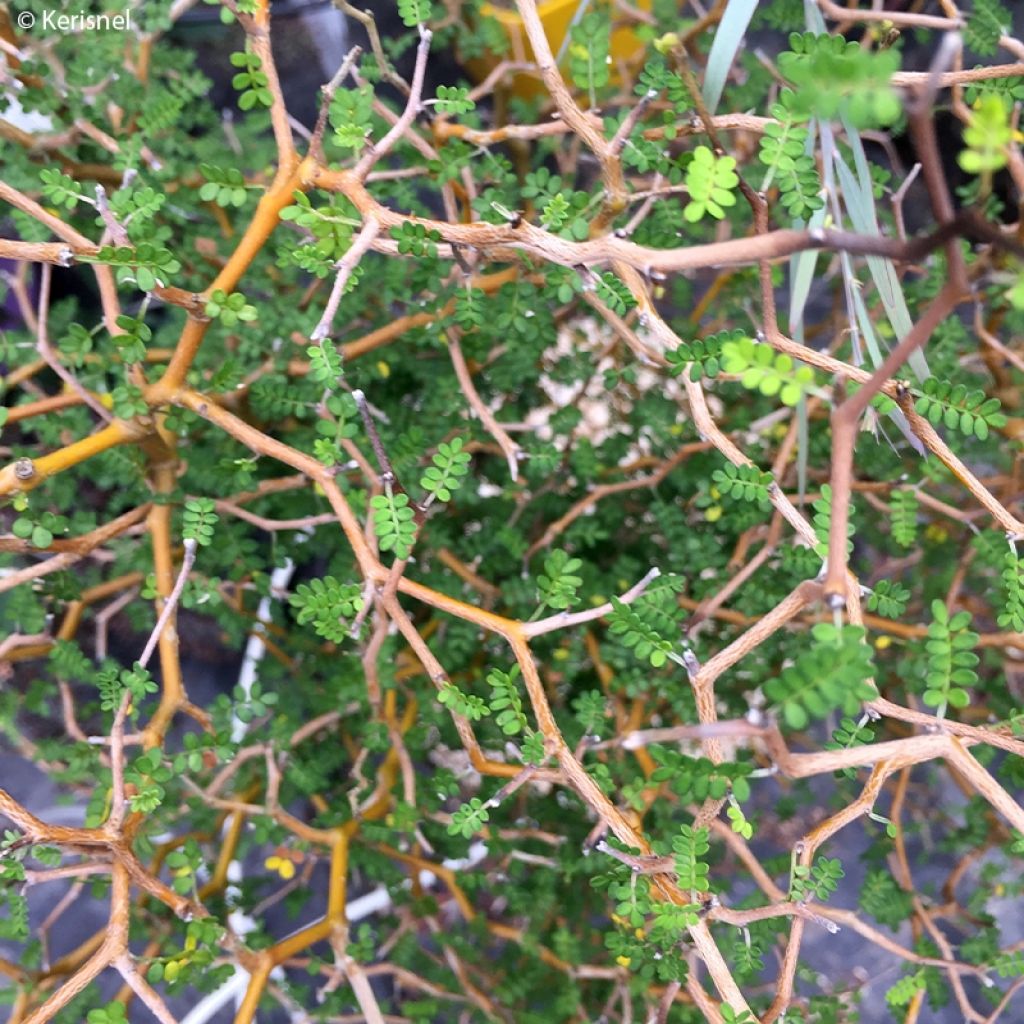

Sophora prostrata Little Baby
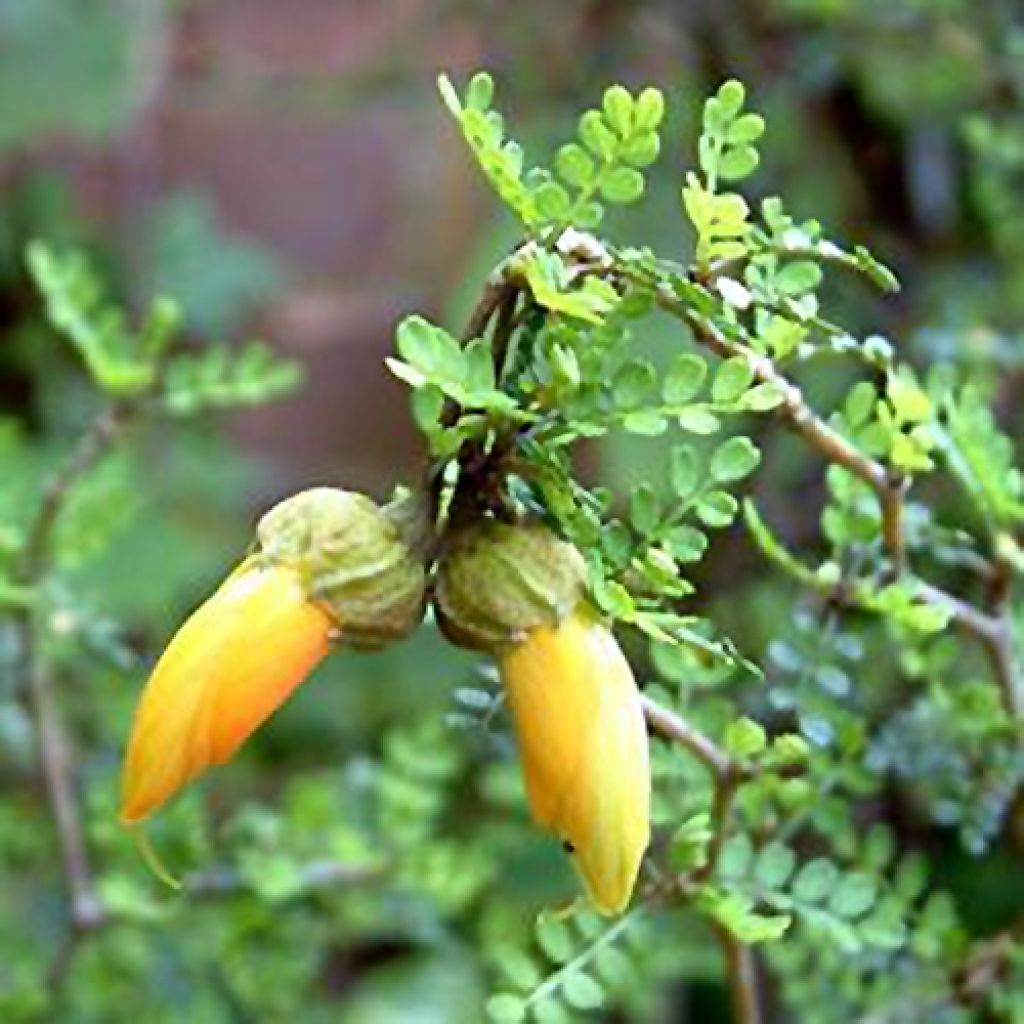

Sophora prostrata Little Baby
Sophora prostrata Little Baby
Sophora prostrata Little Baby
Prostrate Kowhai
This item cannot be shipped to the selected country
Delivery charge from €5.90
Delivery charge from €5.90
More information
Schedule delivery date,
and select date in basket
This plant carries a 24 months recovery warranty
More information
We guarantee the quality of our plants for a full growing cycle, and will replace at our expense any plant that fails to recover under normal climatic and planting conditions.
From €5.90 for pickup delivery and €6.90 for home delivery
Express home delivery from €8.90.
From €5.90 for pickup delivery and €6.90 for home delivery
Express home delivery from €8.90.

Does this plant fit my garden?
Set up your Plantfit profile →
Description
Sophora prostrata 'Little Baby' is a curious bush derived from a species of Sophora that is not very hardy and is of small size, native to the mountain plateaus of New Zealand. Recently introduced to Europe where it has quickly become the mascot of very trendy terraces, this small bush surprises as much as it seduces with its prostrate habit and its twisted and angular silhouette supported by golden branches that grow in a zigzag pattern. A somewhat sparse foliage, cut into tiny leaflets, accentuates the originality of this plant with desert-like characteristics. The bush flowers in early spring, after a few years of cultivation: its small yellow-orange flowers, shaped like a beak, exude a sweet honey scent. 'Little Baby' is a plant that is both charming, endearing, and unusual.
Sophora prostrata belongs to the recently established family of Fabaceae, or legumes. As such, this bush is capable of producing the necessary nitrogen for its growth at its roots, which gives it excellent adaptation to poor soils. It is native to New Zealand, where it is commonly called 'Prostrate Kowhai'. Its natural distribution area is the eastern and dry part of the mountains of the South Island, a region located near Marlborough and south of Canterbury. Therefore, this Sophora tolerates strong winds, intense sunlight, frequent periods of drought, as well as urban environments. In nature, this bush is quite polymorphous; it will adopt a more or less stout or slender appearance depending on the environmental conditions. Hardy to about -10°C (14 °F) in well-drained soil and in a sheltered position, this Sophora tolerates both sandy and dry soils as well as heavier, clayey, and moist soils in mild climates.
The cultivar 'Little Baby' has been selected for its very small development and slightly more colourful flowering. At maturity, the bush will reach an average size of 1.25m (4ft 1in) in all directions, with a rather slow growth. Sophora prostrata has, as its name suggests, a prostrate, divergent, and irregular habit. The branches are slender and develop at a constant and sharp angle at each node, in a zigzag pattern. The leaves, few in number, will be deciduous to evergreen depending on the severity of the winter. They are composed of very small leaflets of a bright green colour that contrasts with the golden yellow colour of the young stems. Flowering occurs on plants that are a few years old, in February-March. These are small solitary papilionaceous flowers, suspended by a peduncle. They are slightly curved, their shape somewhat resembling a miniature parrot's beak. They are yellow-orange and exude a subtle and fleeting scent that attracts pollinating insects. Before fading, these pea flowers bloom into narrow bells that reveal prominent yellow stamens. This flowering is followed by the formation of cylindrical brown pods containing dark kidney-shaped seeds.
The 'Little Baby' dwarf Sophora will express all its originality as a solitary tree, integrated into a mineral decor such as a large rock garden. Its low hardiness allows for cultivation in the ground in zone 8, in a sheltered location. Gardeners in more continental climates will grow it in a large pot to store it indoors during the winter in a cool and very bright room. A plant in a pot or container always tolerates a lack of water much less than its counterpart growing in the ground, so watering should be maintained throughout the growing season, but greatly reduced in winter.
Report an error about the product description
Sophora prostrata Little Baby in pictures
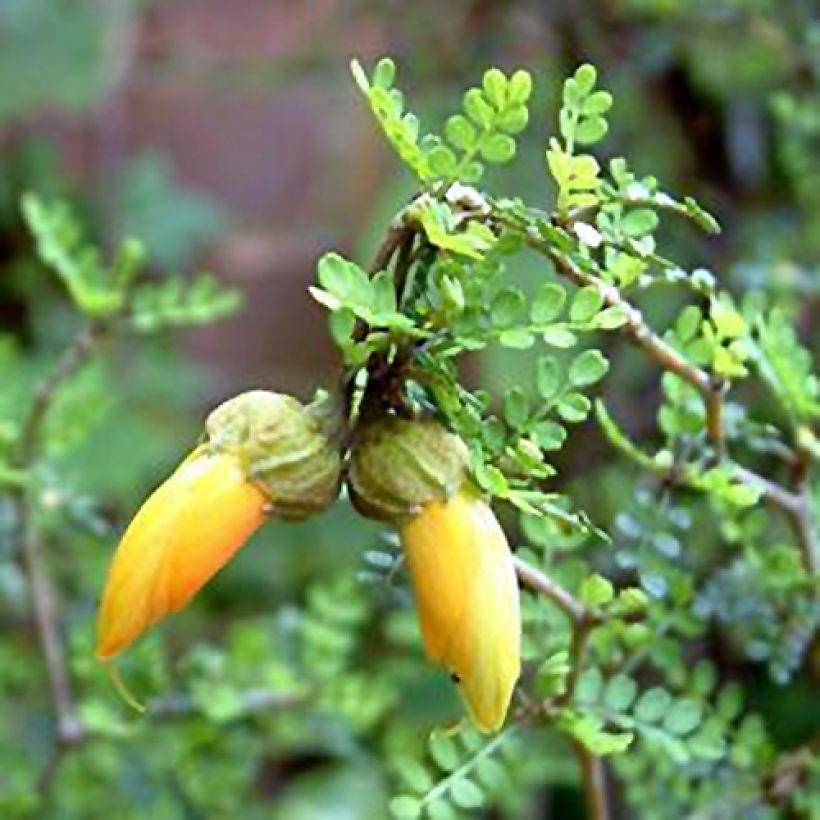



Plant habit
Flowering
Foliage
Botanical data
Sophora
prostrata
Little Baby
Fabaceae
Prostrate Kowhai
Oceania
Other Sophora
Planting and care
Plant Sophora 'Little Baby' in the ground in our regions where winter temperatures do not drop below -10°C (14 °F) for short periods. Preferably plant it in spring or autumn in hot and dry regions. Install it in ordinary soil, dry to moist but preferably well-drained, in a sunny position or, at most, partial shade in the South. Not demanding in terms of soil, it grows equally well in sandy and rocky soils as well as in humus-bearing or clayey soils. Just avoid excessive limestone, although the plant seems to tolerate it. This Sophora is highly resistant to pollution and drought once well established. Cultivation in pots: prepare a mix of horticultural compost, garden soil, and coarse sand in equal parts. Don't forget to place a layer of gravel at the bottom of your (drained) pot to ensure excess water drainage during watering. Water regularly throughout the growing season, reduce water inputs in winter. Store your Sophora 'Little Baby' in a very bright, minimally heated or unheated room, protected from frost during periods of extreme cold. Prune sparingly, if necessary, just after flowering.
Planting period
Intended location
Care
-
, onOrder confirmed
Reply from on Promesse de fleurs
Striking foliage shrubs
Haven't found what you were looking for?
Hardiness is the lowest winter temperature a plant can endure without suffering serious damage or even dying. However, hardiness is affected by location (a sheltered area, such as a patio), protection (winter cover) and soil type (hardiness is improved by well-drained soil).

Photo Sharing Terms & Conditions
In order to encourage gardeners to interact and share their experiences, Promesse de fleurs offers various media enabling content to be uploaded onto its Site - in particular via the ‘Photo sharing’ module.
The User agrees to refrain from:
- Posting any content that is illegal, prejudicial, insulting, racist, inciteful to hatred, revisionist, contrary to public decency, that infringes on privacy or on the privacy rights of third parties, in particular the publicity rights of persons and goods, intellectual property rights, or the right to privacy.
- Submitting content on behalf of a third party;
- Impersonate the identity of a third party and/or publish any personal information about a third party;
In general, the User undertakes to refrain from any unethical behaviour.
All Content (in particular text, comments, files, images, photos, videos, creative works, etc.), which may be subject to property or intellectual property rights, image or other private rights, shall remain the property of the User, subject to the limited rights granted by the terms of the licence granted by Promesse de fleurs as stated below. Users are at liberty to publish or not to publish such Content on the Site, notably via the ‘Photo Sharing’ facility, and accept that this Content shall be made public and freely accessible, notably on the Internet.
Users further acknowledge, undertake to have ,and guarantee that they hold all necessary rights and permissions to publish such material on the Site, in particular with regard to the legislation in force pertaining to any privacy, property, intellectual property, image, or contractual rights, or rights of any other nature. By publishing such Content on the Site, Users acknowledge accepting full liability as publishers of the Content within the meaning of the law, and grant Promesse de fleurs, free of charge, an inclusive, worldwide licence for the said Content for the entire duration of its publication, including all reproduction, representation, up/downloading, displaying, performing, transmission, and storage rights.
Users also grant permission for their name to be linked to the Content and accept that this link may not always be made available.
By engaging in posting material, Users consent to their Content becoming automatically accessible on the Internet, in particular on other sites and/or blogs and/or web pages of the Promesse de fleurs site, including in particular social pages and the Promesse de fleurs catalogue.
Users may secure the removal of entrusted content free of charge by issuing a simple request via our contact form.
The flowering period indicated on our website applies to countries and regions located in USDA zone 8 (France, the United Kingdom, Ireland, the Netherlands, etc.)
It will vary according to where you live:
- In zones 9 to 10 (Italy, Spain, Greece, etc.), flowering will occur about 2 to 4 weeks earlier.
- In zones 6 to 7 (Germany, Poland, Slovenia, and lower mountainous regions), flowering will be delayed by 2 to 3 weeks.
- In zone 5 (Central Europe, Scandinavia), blooming will be delayed by 3 to 5 weeks.
In temperate climates, pruning of spring-flowering shrubs (forsythia, spireas, etc.) should be done just after flowering.
Pruning of summer-flowering shrubs (Indian Lilac, Perovskia, etc.) can be done in winter or spring.
In cold regions as well as with frost-sensitive plants, avoid pruning too early when severe frosts may still occur.
The planting period indicated on our website applies to countries and regions located in USDA zone 8 (France, United Kingdom, Ireland, Netherlands).
It will vary according to where you live:
- In Mediterranean zones (Marseille, Madrid, Milan, etc.), autumn and winter are the best planting periods.
- In continental zones (Strasbourg, Munich, Vienna, etc.), delay planting by 2 to 3 weeks in spring and bring it forward by 2 to 4 weeks in autumn.
- In mountainous regions (the Alps, Pyrenees, Carpathians, etc.), it is best to plant in late spring (May-June) or late summer (August-September).
The harvesting period indicated on our website applies to countries and regions in USDA zone 8 (France, England, Ireland, the Netherlands).
In colder areas (Scandinavia, Poland, Austria...) fruit and vegetable harvests are likely to be delayed by 3-4 weeks.
In warmer areas (Italy, Spain, Greece, etc.), harvesting will probably take place earlier, depending on weather conditions.
The sowing periods indicated on our website apply to countries and regions within USDA Zone 8 (France, UK, Ireland, Netherlands).
In colder areas (Scandinavia, Poland, Austria...), delay any outdoor sowing by 3-4 weeks, or sow under glass.
In warmer climes (Italy, Spain, Greece, etc.), bring outdoor sowing forward by a few weeks.

































